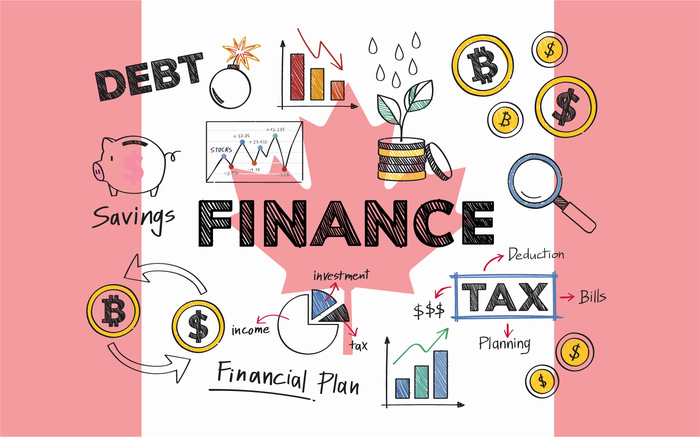Welcome to our article “Don’t Let These Top 5 Financial Mistakes Derail Your 20s“. Your twenties can be exciting, with many new experiences and opportunities. However, it’s also a time when you may be starting on your own, making your own financial decisions, and learning to navigate the world of personal finance. It’s important to make smart financial decisions during this time to set yourself up for long-term financial success. This article aims to highlight the top five financial mistakes to steer clear of in your 20s, and provide practical tips and advice on making wise financial choices that can have positive effects on your future. Whether you’re just starting or have been alone for a few years, this article is for you. So, let’s start and ensure you don’t make these common financial mistakes!
Mistake 1: Not Having a Budget
Neglecting to create a budget is among the most significant financial errors individuals tend to make during their twenties. Without a budget, it can be easy to overspend and not realize where your money is going. Creating a budget is essential for understanding your income, expenses, and how much money you can save each month.
To create a budget, start by tracking your income and expenses for a few months. This will aid in comprehending the amount of income you have and where you are directing your expenditures. Next, categorize your expenses into different categories such as housing, food, transportation, entertainment, and savings. You can use online tools or apps to help you with this process.
Once you have a budget in place, make sure to stick to it. This means being mindful of your spending and making adjustments as necessary. By having a budget, you’ll be able to make smarter financial decisions and avoid overspending, which can lead to debt and financial stress.
FAQ
How do I create a budget?
To create a budget, start by tracking your income and expenses for a few months. This will aid in comprehending the amount of income you have and where you are directing your expenditures. Next, categorize your expenses into different categories such as housing, food, transportation, entertainment, and savings. You can use online tools or apps to help you with this process.
What are the benefits of budgeting?
Budgeting can help you manage your money more effectively, avoid overspending, and save for your goals. It can also help you identify areas where you may be spending too much money and adjust accordingly.
Which budgeting apps are the best?
Many budgeting apps are available, and the best one for you may depend on your individual needs and preferences. Some popular budgeting apps include Mint, Personal Capital, YNAB, and PocketGuard.
Mistake 2: Living Beyond Your Means
Living beyond your means is a common financial mistake many people make in their 20s. Spending money on things you don’t need or can’t be tempting, especially if you are trying to keep up with your peers or impress others. However, this can lead to debt and financial stress in the long run.
To avoid living beyond your means, it’s important to clearly understand your income and expenses. Make sure to budget for your essential expenses, such as housing, food, transportation, and healthcare. Then, allocate a portion of your income towards savings and investments.
If you want to make a purchase you can’t afford, consider waiting and saving up for it instead of relying on credit or loans. Remember that delaying gratification and making smart financial decisions now is better than paying for it later with high-interest debt.
FAQ
How do I know if I’m living beyond my means?
If you regularly rely on credit cards, loans, or other forms of debt to make ends meet, you may be living beyond your means. Another sign is if you cannot save money or contribute to your investments.
How can I reduce my expenses if I’m living beyond my means?
Start by creating a budget and identifying areas to cut back on expenses. This could include eating out less, finding a cheaper living place, or reducing entertainment expenses. Consider increasing your income, such as working part-time or freelancing.
Should I use credit cards to build my credit score?
While using credit cards can help you build your credit score, it’s important to use them responsibly and not rely on them for everyday expenses. Only charge what you can afford to pay off in full each month, and make sure to pay your bills on time to avoid interest charges and late fees.
Mistake 3: Not Saving for Emergencies
Not saving for emergencies is another common financial mistake many people make in their 20s. Emergencies, such as unexpected medical bills, car repairs, or job loss, can happen anytime. Without an emergency fund, you may be forced to rely on credit or loans to cover these expenses, leading to debt and financial stress.
To avoid this mistake, set aside a portion of your monthly income towards an emergency fund. Aim to save at least 3-6 months’ worth of expenses in case of a job loss or other financial emergency. You can start small and gradually increase your savings over time.
Consider opening a separate savings account specifically for your emergency fund, so you are not tempted to use the money for other expenses. Automate your savings by setting up a direct deposit from your paycheck, so you don’t have to think about it. Having an emergency fund can give you peace of mind and protect you from financial hardship in the future.
FAQ
How much should I save in my emergency fund?
Aim to save at least 3-6 months’ expenses in your emergency fund. This can vary depending on your circumstances, such as your job stability, health status, and monthly expenses. You may want to save even more if you have dependents or a higher risk of job loss.
Should I invest my emergency fund?
No, your emergency fund should be kept in a low-risk, easily accessible account, such as a savings or money market fund. Avoid investing the money in stocks or other high-risk assets, as you may be unable to access it quickly in an emergency.
Can I use my emergency fund for non-emergency expenses?
It’s best to reserve your emergency fund for true emergencies, such as unexpected medical bills or job loss. Avoid using it for non-essential expenses or purchases you could save up for separately. If you do use your emergency fund, make sure to replenish it as soon as possible.
Mistake 4: Not Investing for the Future
Many people in their 20s do not think about investing for the future because they feel it’s too early to start or they don’t understand the benefits. However, starting early can be one of the best things you can do for your financial future, as it allows you to take advantage of compound interest and potentially earn higher returns over time.
To avoid this mistake, consider investing some of your income in a retirement account, such as a 401(k) or IRA. If your employer offers a 401(k) match, take advantage of it, as it’s essentially free money. You can also consider investing in individual stocks or mutual funds, but do your research and understand the risks involved.
It’s also important to regularly review and adjust your investment portfolio based on your individual goals and risk tolerance. Remember that investing is a long-term strategy, so don’t panic during short-term market fluctuations. You can set yourself up for a secure financial future with patience and discipline.
FAQ
Is it too early to start investing in my 20s?
No, starting to invest in your 20s can be one of the best things you can do for your financial future. The earlier you start, the more time you have to take advantage of compound interest and potentially earn higher returns.
What is compound interest, and why is it important for investing?
Compound interest is when you earn interest on your initial investment, and the interest accrues over time. This can help your investments grow faster over the long term. Starting early is important to take advantage of compound interest and potentially earn higher returns over time.
What is the difference between a 401(k) and an IRA?
A 401(k) is a retirement account offered by an employer, while an IRA is an individual retirement account that you can open on your own. Both offer tax benefits and allow you to save for retirement, but there are differences in contribution limits, investment options, and fees. It’s important to research and choose the option that best suits your needs and goals.
What should I do if I’m not comfortable investing in stocks?
Suppose you’re not comfortable investing in individual stocks or mutual funds. In that case, you can consider investing in index or target-date funds, designed to be more diversified and less risky. Researching and choosing investments that align with your risk tolerance and long-term goals is important.
Mistake 5: Taking on Too Much Debt
In your 20s, it’s easy to fall into the trap of taking on too much debt, whether from credit cards, student loans, or other types of loans. While some debt can be necessary, too much debt can lead to financial stress and limit your ability to reach your long-term goals.
To avoid this mistake, it’s important to create a budget and stick to it to manage your expenses and avoid overspending. You can also consider paying off your high-interest debts first, such as credit cards, to reduce your interest over time.
If you have student loans, consider enrolling in an income-driven repayment plan, which can help reduce your monthly payments based on your income level. It’s also important to avoid taking on new debt, such as by delaying major purchases or finding ways to increase your income.
Remember that too much debt can have long-lasting consequences, so it’s important to be mindful of your spending and debt levels.
FAQ
Is it ever okay to take on debt in your 20s?
Yes, some types of debt can be necessary for your 20s, such as student loans or a mortgage. However, it’s important to be mindful of your debt levels and only takes on debt that you can realistically manage and pay off over time.
How can I avoid taking on too much debt?
To avoid taking on too much debt, it’s important to create a budget and stick to it, so you can manage your expenses and avoid overspending. You can also consider paying off your high-interest debts first, such as credit cards, to reduce your interest over time.
What should I do if I have a lot of debt already?
If you already have a lot of debt, it’s important to plan to pay it off as quickly as possible. You can consider consolidating your debts into a single loan with a lower interest rate or enrolling in an income-driven repayment plan for your student loans. It’s also important to avoid taking on new debt, such as by delaying major purchases or finding ways to increase your income.
What are the consequences of taking on too much debt?
Too much debt can have long-lasting consequences, such as lower credit scores, higher interest rates, and limited ability to achieve long-term financial goals. It can also lead to financial stress and strain on personal relationships. It’s important to be mindful of your debt levels and only takes on debt you can realistically manage and pay off over time.
Should I prioritize paying off debt or investing in my 401(k)?
It depends on your situation and financial goals. Typically, it’s advisable to give priority to paying off high-interest debt like credit card balances before allocating funds towards your 401(k) investment. However, if your employer offers a 401(k) match, take advantage of it, as it’s essentially free money. Creating a financial plan that balances paying off debt with investing for your future is important.




